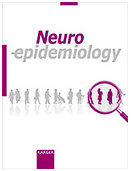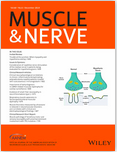 Autoimmune myasthenia gravis (MG), a dysimmunity disorder of the neuromuscular junction, begins in 60% of cases in an adult before the age of 40, that is, in full “active life”. So what is its impact on the possibility of exercising a professional activity? Two publications provide answers:
Autoimmune myasthenia gravis (MG), a dysimmunity disorder of the neuromuscular junction, begins in 60% of cases in an adult before the age of 40, that is, in full “active life”. So what is its impact on the possibility of exercising a professional activity? Two publications provide answers:
- MG would reduce the employment rate by 15 to 35%, the affected people being only 50% to exercise a professional activity, according to a meta-analysis of 19 studies which gathered a total of 3600 participants (mean age 47.5 years) from different countries;
- patients with a refractory form of MG are more often unemployed than those with a non-refractory form (68.4% vs 44.1%) and work less often full time (23.7% vs 44, 5%). They’re not on sick leave more
 often, according to a study of 825 people enrolled in the Myasthenia Gravis Foundation of America (MGFA) registry, suffering from MG for two years or more and aged 18 to 64.
often, according to a study of 825 people enrolled in the Myasthenia Gravis Foundation of America (MGFA) registry, suffering from MG for two years or more and aged 18 to 64.
